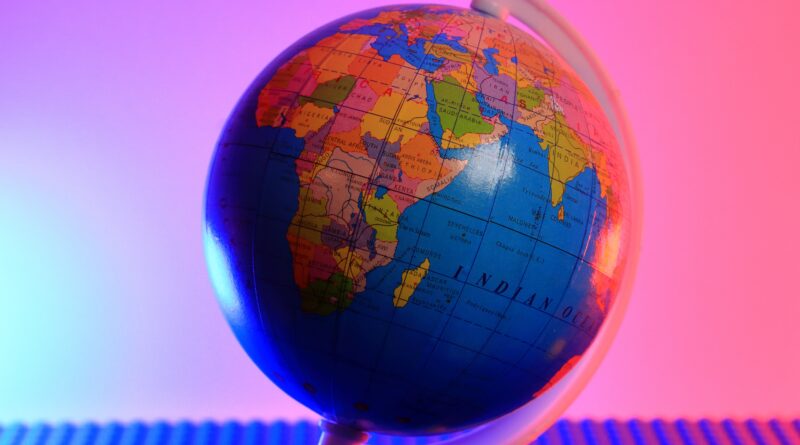(Under)Representation of Research Journals from Africa in Web of Science, and Scopus
(Under)Representation of Research Journals from Africa in Web of Science, and Scopus
Toluwase Victor Asubiaro
Web of Science and Scopus are arguably the two most authoritative journal indexing databases and data sources for research evaluation globally. These two academic are the most used as data sources for global academic ranking for universities such as the reputable Times Higher Education (THE) global ranking for universities and countries and science reports such as the United Nations Educational, Science and Cultural Organization (UNESCO) global science reports. Global academic accolades, appointments and promotions are based on data from these two databases. In fact, Bohórquez, (2016) submits that the enormous influence of Web of Science and Scopus on global research translates to “power to steer research” globally.
—Despite the global authoritativeness of Web of Science and Scopus, there are concerns that both platforms are not truly "global"—
Despite the global authoritativeness of Web of Science and Scopus, there are concerns that both platforms are not truly “global” (Tennant, 2020) because they are systematically and structurally biased against research produced in non-Western countries, non-English language journals, and research from the arts, humanities, and social sciences (Asubiaro, 2022b; Falagas et al., 2008; Harzing, 2016; Mongeon & Paul-Hus, 2016; Tennant, 2020; Vera-Baceta et al., 2019). Using publication data from Web of Science and Scopus, many studies have reported that Africa (or Sub-Saharan Africa) is grossly underproductive. Empirical studies between 2012 and 2021 using data from Web of Science and/or Scopus show that Africa (constituting about 16% of the world’s population) contributed to less than 3% of the global scientific publications (Tijssen, 2007; Confraria & Godinho, 2015; Asubiaro & Shaik, 2021).
 This is the first study that evaluated the coverage of journals from Africa in Web of Science and Scopus to understand how these two databases are inclusive of journals from Africa. A list of active journals published in each of the 55 African countries was compiled from Ulrich’s periodicals directory and African Journals Online (AJOL) website. Journal master lists for Web of Science, Scopus and Crossref were searched for the African journals. A total of 2,229 unique active African journals were identified from Ulrich (N=2117, 95.0%) and AJOL (N=243, 10.9%) after removing duplicates. The volume of African journals in Web of Science and Scopus databases is 7.4% (N=166) and 7.8% (N=174), respectively, compared to the 45.6% (N=1017) covered in CrossRef. South Africa enjoyed the broadest coverage in the two most authoritative databases, accounting for 73.5% and 62.1% of all the African journals in Web of Science and Scopus, respectively. In contrast, Nigeria published 44.5% of the journals. The distribution of the African journals is biased in favour of Medical, Life and Health Sciences and Humanities and the Arts in the three databases. The low representation of African journals in CrossRef, a free indexing infrastructure that could be harnessed for building an African-centric research indexing database, is concerning.
This is the first study that evaluated the coverage of journals from Africa in Web of Science and Scopus to understand how these two databases are inclusive of journals from Africa. A list of active journals published in each of the 55 African countries was compiled from Ulrich’s periodicals directory and African Journals Online (AJOL) website. Journal master lists for Web of Science, Scopus and Crossref were searched for the African journals. A total of 2,229 unique active African journals were identified from Ulrich (N=2117, 95.0%) and AJOL (N=243, 10.9%) after removing duplicates. The volume of African journals in Web of Science and Scopus databases is 7.4% (N=166) and 7.8% (N=174), respectively, compared to the 45.6% (N=1017) covered in CrossRef. South Africa enjoyed the broadest coverage in the two most authoritative databases, accounting for 73.5% and 62.1% of all the African journals in Web of Science and Scopus, respectively. In contrast, Nigeria published 44.5% of the journals. The distribution of the African journals is biased in favour of Medical, Life and Health Sciences and Humanities and the Arts in the three databases. The low representation of African journals in CrossRef, a free indexing infrastructure that could be harnessed for building an African-centric research indexing database, is concerning.
References
Asubiaro, T. V., & Shaik, H. (2021). Sub-Saharan African Countries’ COVID-19 Research: An analysis of the External and Internal Contributions, Collaboration Patterns and Funding Sources. Open Information Science, 5, 263–277. https://doi.org/10.1515/opis-2020-0125
Bohórquez, D. A. C. (2016). Universalism and Particularism: Explaining the Emergence and Growth of Regional Journal Indexing Systems [Doctoral Thesis]. University of Sussex.
Confraria, H., & Godinho, M. M. (2015). The impact of African science: A bibliometric analysis. Scientometrics, 102(2), 1241–1268.
Falagas, M. E., Pitsouni, E. I., Malietzis, G. A., & Pappas, G. (2008). Comparison of PubMed, Scopus, Web of Science, and Google Scholar: Strengths and weaknesses. The FASEB Journal, 22(2), 338–342. https://doi.org/10.1096/fj.07-9492LSF
Harzing -, A.-W. (2016). Do Google Scholar, Scopus and the Web of Science speak your language? Harzing.Com. https://harzing.com/publications/white-papers/do-google-scholar-scopus-and-the-web-of-science-speak-your-language
Mongeon, P., & Paul-Hus, A. (2016). The journal coverage of Web of Science and Scopus: A comparative analysis. Scientometrics, 106(1), 213–228. https://doi.org/10.1007/s11192-015-1765-5
Tennant, J. P. (2020). Web of Science and Scopus are not global databases of knowledge. European Science Editing, 46, e51987. https://doi.org/10.3897/ese.2020.e51987
Tijssen, R. J. W. (2007). Africa’s contribution to the worldwide research literature: New analytical perspectives, trends, and performance indicators. Scientometrics, 71(2), 303–327. https://doi.org/10.1007/s11192-007-1658-3
Vera-Baceta, M.-A., Thelwall, M., & Kousha, K. (2019). Web of Science and Scopus language coverage. Scientometrics, 121(3), 1803–1813. https://doi.org/10.1007/s11192-019-03264-z
Cite this article in APA as: Asubiaro, T. V., (2023, March 29). (Under)Representation of research journals from Africa in web of science, and scopus. Information Matters, Vol. 3, Issue 3. https://informationmatters.org/2023/03/underrepresentation-of-research-journals-from-africa-in-web-of-science-and-scopus/






